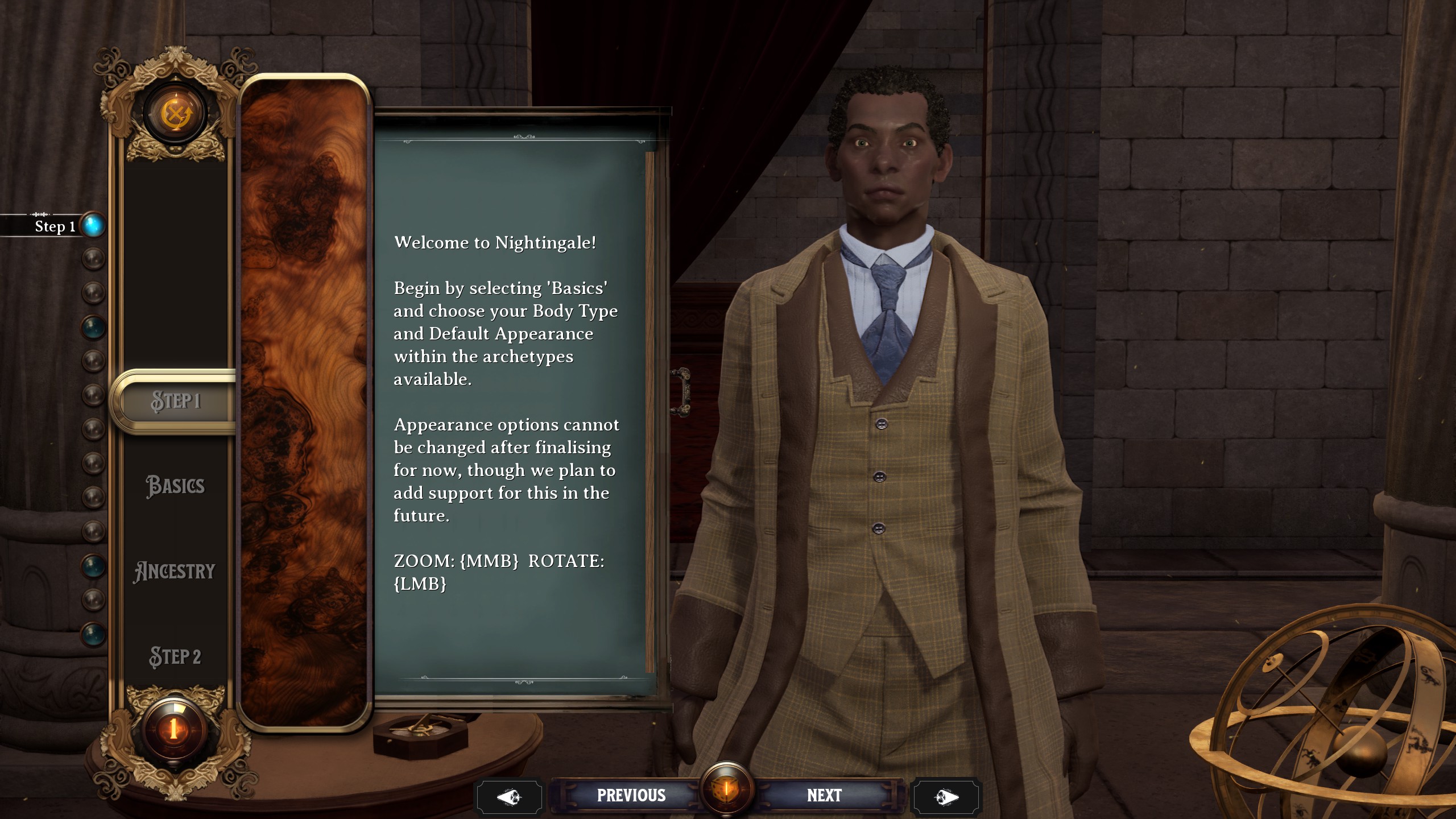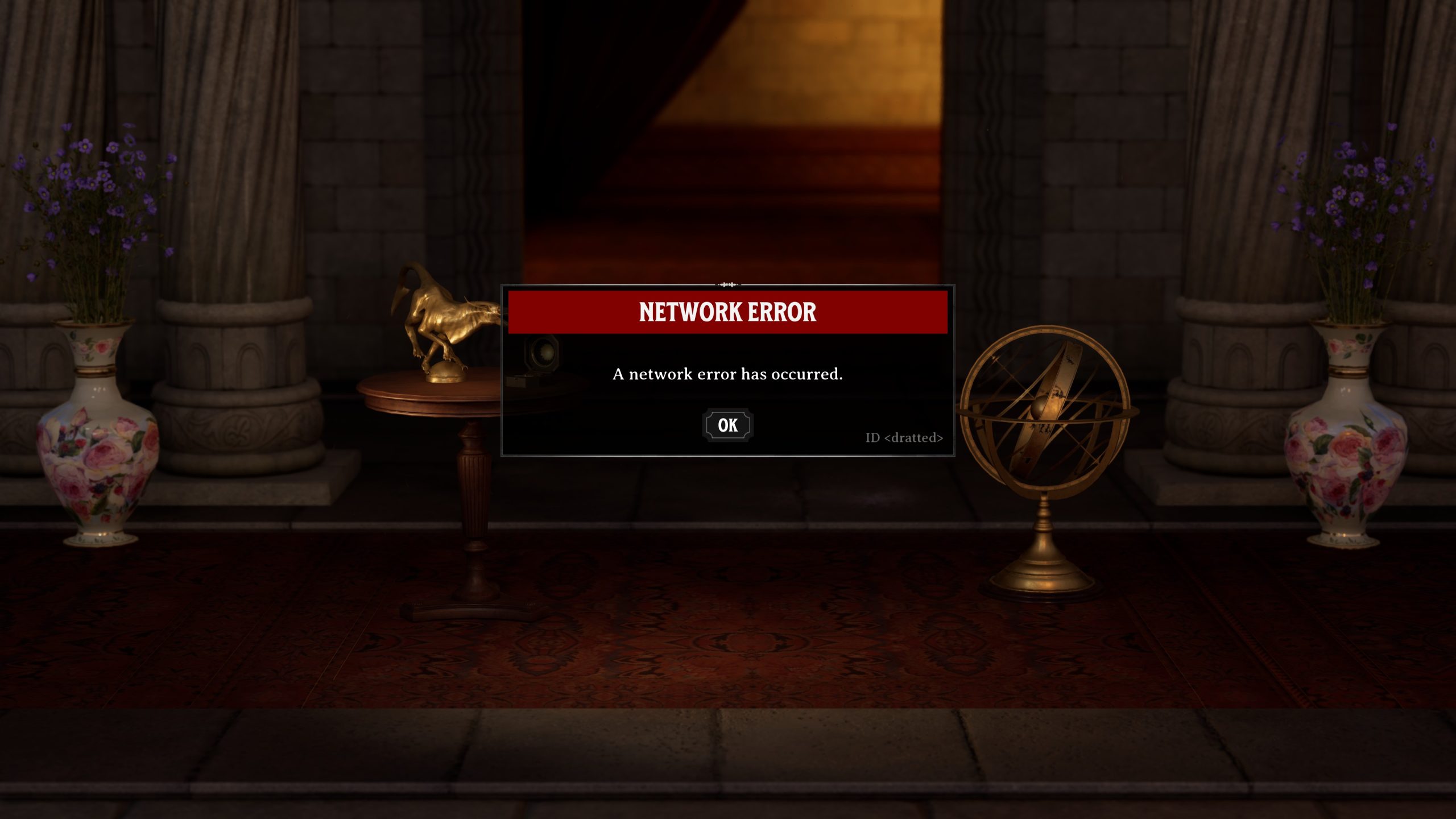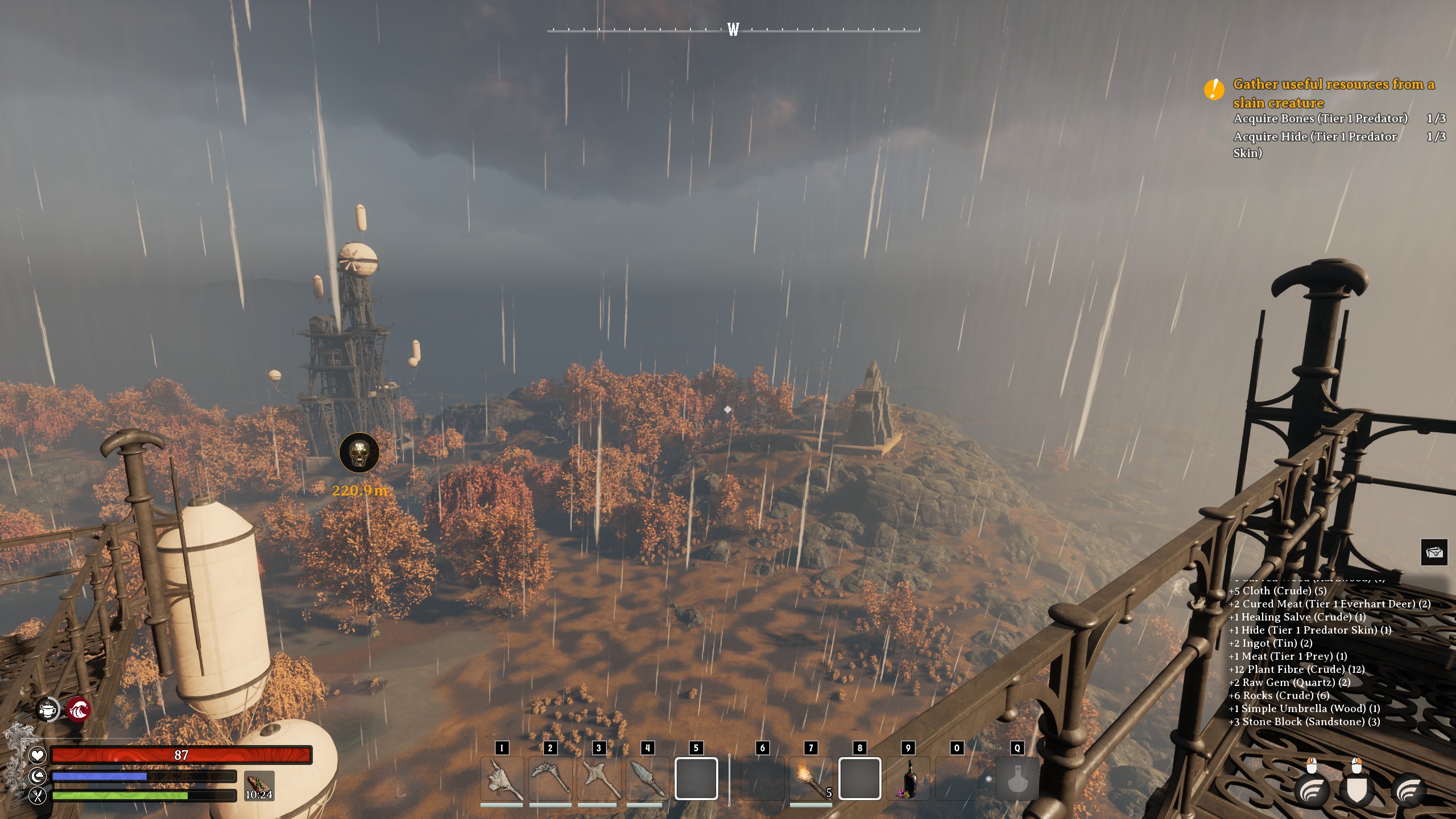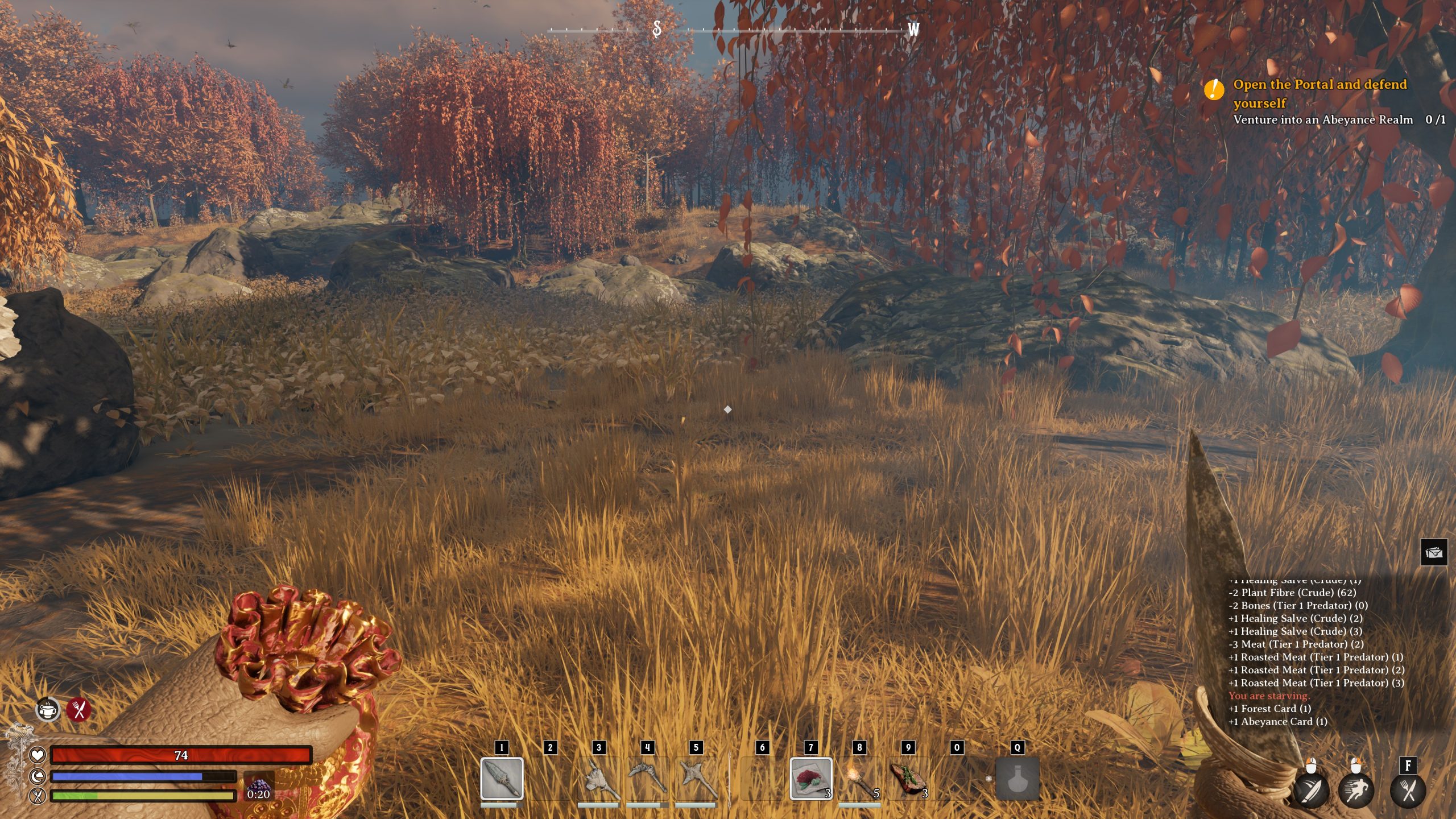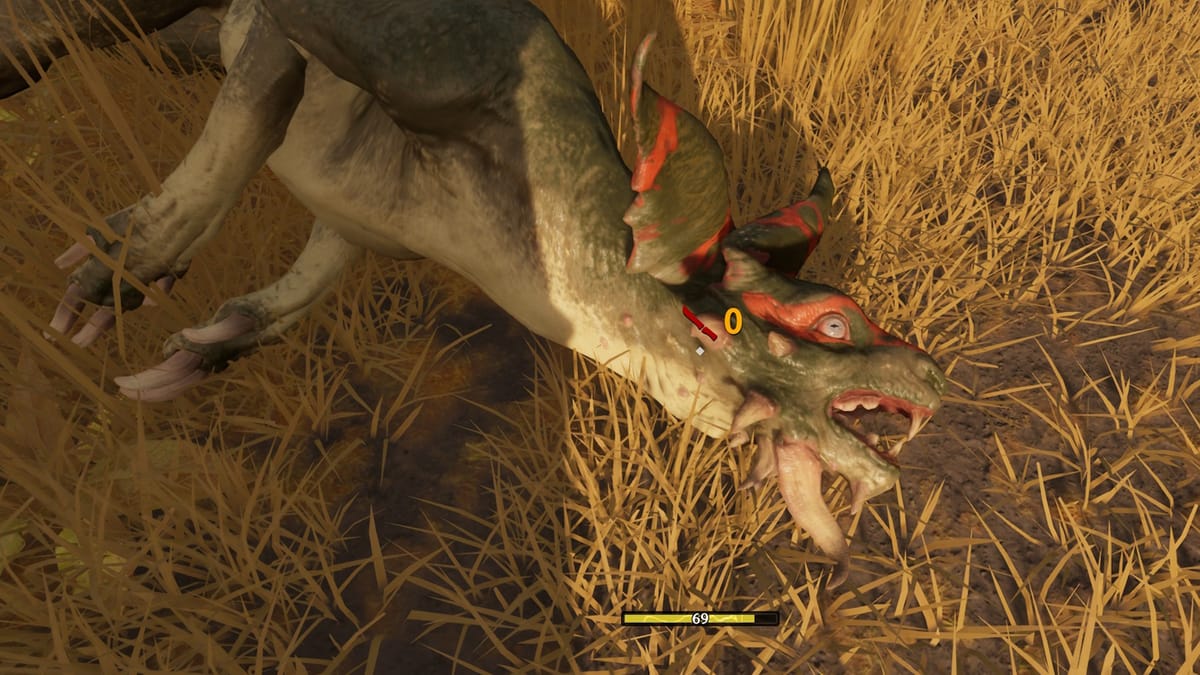
It’s maddening to think that games might take three, four, five, maybe even six years from the proof of concept phase to the final product. Of course, The Elder Scrolls: IV is probably another couple of years out, and that was announced back in 2018! That’s insane. But, I get it – games nowadays look like movies, like you could slip into that world and touch it. When the demand for pretty and intricately detailed games is so high, it’s crucial for developers to spend as much time as they can to get it to the standard that’s expected of them in 2024.
Of course, as Gabe Newell said, “Late is just for a little while, suck is forever”, and it’s true, for the most part. Cyberpunk 2077 launched and jeez, what a flop that was. But, they bounced back, right? It’s a cult classic, and even with some pertinent issues, it’s amazing. So when Nightingale was announced way back in 2021, and it’s taken them three years to produce a product into early access, my first thoughts were “Surely they’ve spent enough time as they need, there’s no way they’d follow the footsteps of CD Projekt Red and release a poor initial product”.
Boy was I wrong.
Nightingale is bad, like not disastrous, just bad. I mean it starts off strong – you spend some time in the character creator (which, admittedly, is very bare), then you meet a fae named Puck who acts as your tutorial guide and he sets you up for your first survival adventure.
Then, it just gets worse.
I smashed through the first area, gathering as many stones, sticks, and berries as my arms could hold, built a camp, cooked my food, and then traveled to the desert realm. Traveling to a new realm and experiencing it for the first time is always a great experience, at least it should be. Not long after I teleported I noticed my weapons just disappeared from my hands. One of the creatures that had spawned nearby started trying to walk up a cliff face. And that’s when I realized what happened.
Not even five minutes into this new realm I noticed the first glaring issue – server dropouts. Weird right? Why would a single-player world be connected to a server? Why would I be dropping out right now? As it turns out, Inflexion Games forgot to put in an offline mode on release, and for a whole day, I couldn’t connect back into my world. If I had paid $30 for this I’d probably have refunded it straight away.
It’s impossible to not notice the delay when swinging a pickaxe onto a rock and waiting for it to break down, or when the shadows jump and skip across the landscape instead of slowly passing by, or the drop in frames once every now and again. This might be a pretty-looking game, but it’s hiding a lot of skeletons in its closet.
The biomes also feel really small, and a little bit… uninteresting. Take the swamp biome, the third area you explore in the game, and you start to climb the first tower you see. Pretty cool, lots to loot, then you climb to the top, and you look out. You notice in the distance the exact same tower that you’re standing on. You look further, and you see that the biome is just surrounded by water, it’s tiny. Surely that can’t be right? So you swim and swim until disease catches up to you, and you’re staring at a “you’re dead” screen. So you stop, and realize something, it’s just… empty. The world feels empty, this swamp literally has one enemy, there’s only two whole towers. This is meant to be the third world, part of your tutorial and there’s nothing exciting that it puts forward to you. This is Nightingale.
It’s not all doom and gloom, there’s some good mixed in the pile of bad. The enemy types are interesting, even if they randomly chase you down out of nowhere and the lag makes it very hard to avoid hits and land them. But the lore, which is delivered either through talking to Puck or releasing “Hope Echos”, is also very fascinating, and it’s nice how slowly it gets trickled down to you and keeps you wanting more.
The crafting system is also extremely in-depth, so much so that you have to actually ignite the campfire, maintain the fuel, place your ingredients into the pot, and even mix and match ingredients to create a different type of food with different attributes and modifiers — that is a great feature to have in a survival game.
But the lag and lack of depth in the world design makes it difficult to enjoy. If, for example, you’re hitting an object or crafting an item, but you press that button/mouse click in the middle of a server tick (at least that’s what I think is causing it), it won’t register. So you have to hit that object again, dodge out of the way again, do whatever action you were just doing… again. It’s tiresome.
Every building in Nightingale has traits. A lean-to made of sticks is little more than keeping the rain off your head, and adding a fire pit and a crafting station to it isn’t going to suddenly make it a mansion. Upgrading to a house made of sticks will improve things, but you are still going to be cold at night. The more equipment you put in, and the better materials you use, the more positive an effect you’ll see across the board. Placing these objects near one another provides bonuses or additional functionality. A bed out of the rain is always going to be better than one in the elements. One that’s near a fire is even better. These traits have a direct impact on things like crafting time and quality. As your home becomes nicer and more complex, additional augmentations are possible, encouraging you to upgrade your digs periodically.
The same could be said of your equipment. A stick with a rock lashed to it might work to do basic mining, but using leather straps, refined wood, and less rough-hewn stone will give you something that’ll hold up to some abuse. Similarly, once you’ve unlocked a basic forge, you can begin to build tools out of metal — built to last.
There are a great many activities available, even as we kick off Early Access. All of the expected survival things like crafting and upgrading to be sure, but also challenges like building increasingly complex homes, hunting certain animals, building out higher tiers of gear, hunting rare or unique creatures, learning magic, brewing potions, and quests, just to scratch the surface. And all this before you even invite up to six more friends to your party. That brings me to the largest problem we encountered in Nightingale, and one that thankfully is being addressed directly by the developer — connectivity.
I’m in Australia and my connectivity is awful. Ron is in the United States and his experience has been the polar opposite of mine. South American servers just launched, and more regions are on the way. At least as Early Access begins, your online connectivity may be seamless, a nightmare, or somewhere in between. The developers have announced that they’ll be bringing offline modes to the game, and almost inevitably, places like GPortal will offer dedicated hosted experiences in the future. There is no confirmed timing for any of these things yet, so your mileage may vary — wildly.
As you explore the Abeyance Realms (that’s what Nightingale calls the various card combination worlds) you’ll run into Essence Traders. These NPCs have resources, consumables, new crafting schematics, and more on offer in exchange for various bits, bobs, and essences you might collect along the way. These folks often have whatever is necessary to upgrade to the next tier of gear, weapons, or construction materials, so it’s worth visiting them early and often.
All all in, Nightingale has promise. It’s rich in story, and the gameplay is exactly what the survival genre needs. Crafting mechanics, including even just creating a meal, is extremely detailed and rewards you for thinking critically rather than just lumping together whatever you can find.
But it absolutely can be better, and unfortunately, the experience seems to be tied to where you’re located. Oceania players will log into weak servers, causing significant lag and damaging the overall experience, but if you’re based in the United States you’ll have a much better time. Offline mode is confirmed to be in the works, and that should make the single-player experience a lot more fun, but as it currently stands expect your experience to be shaped by the servers you connect to.

